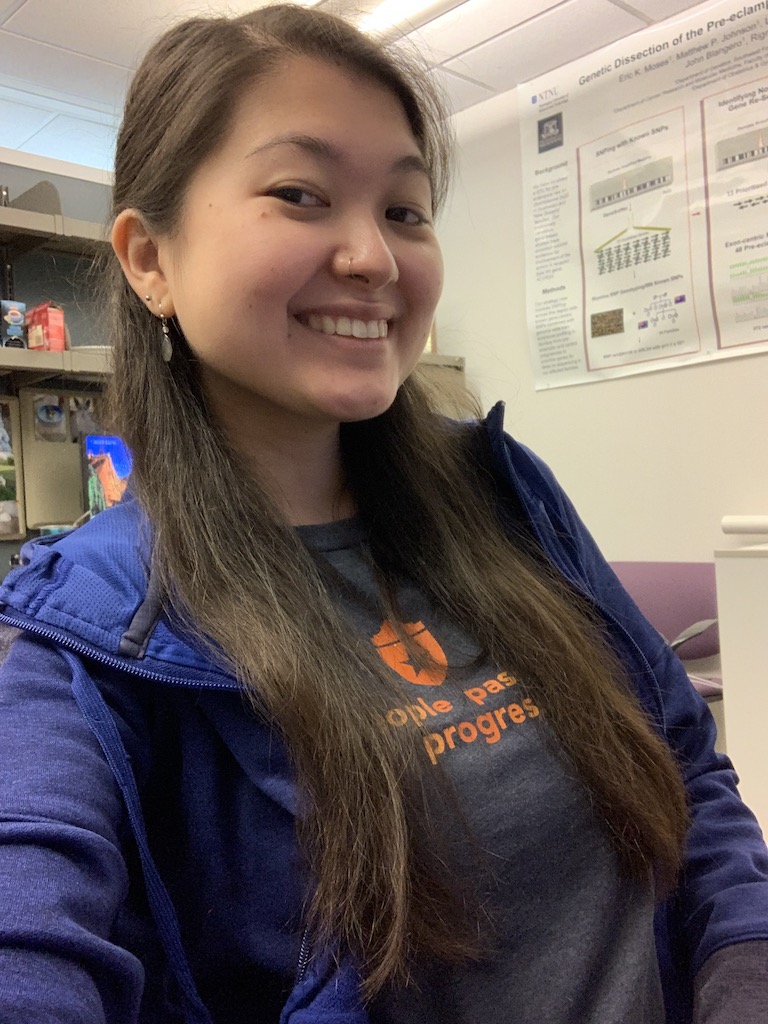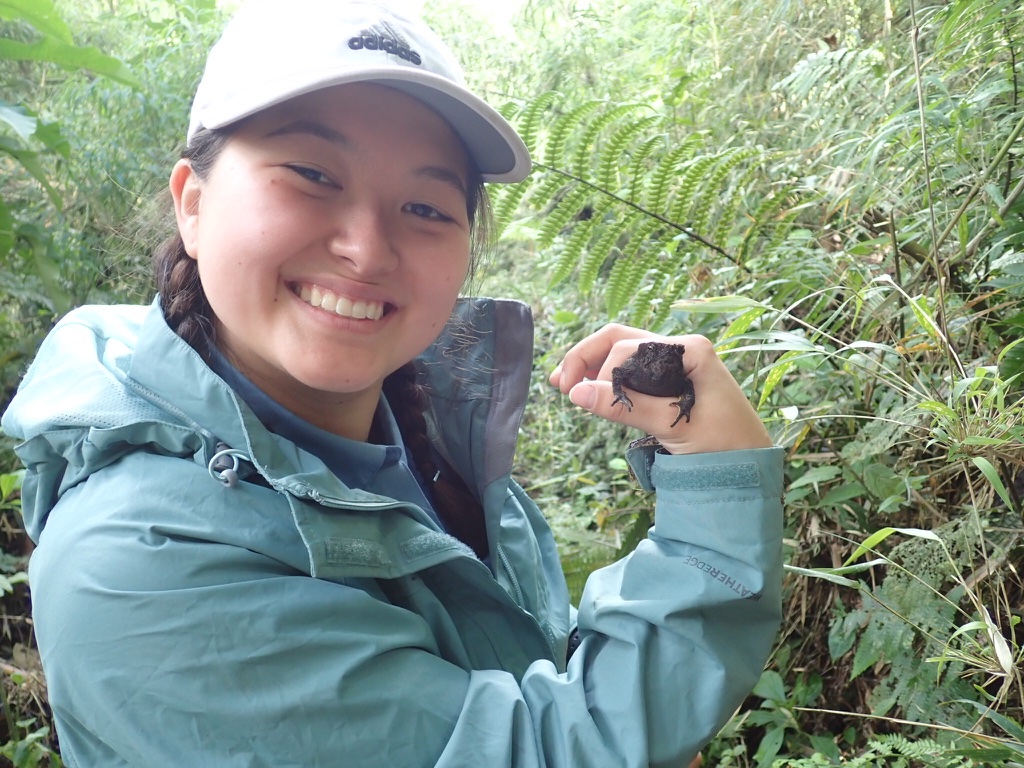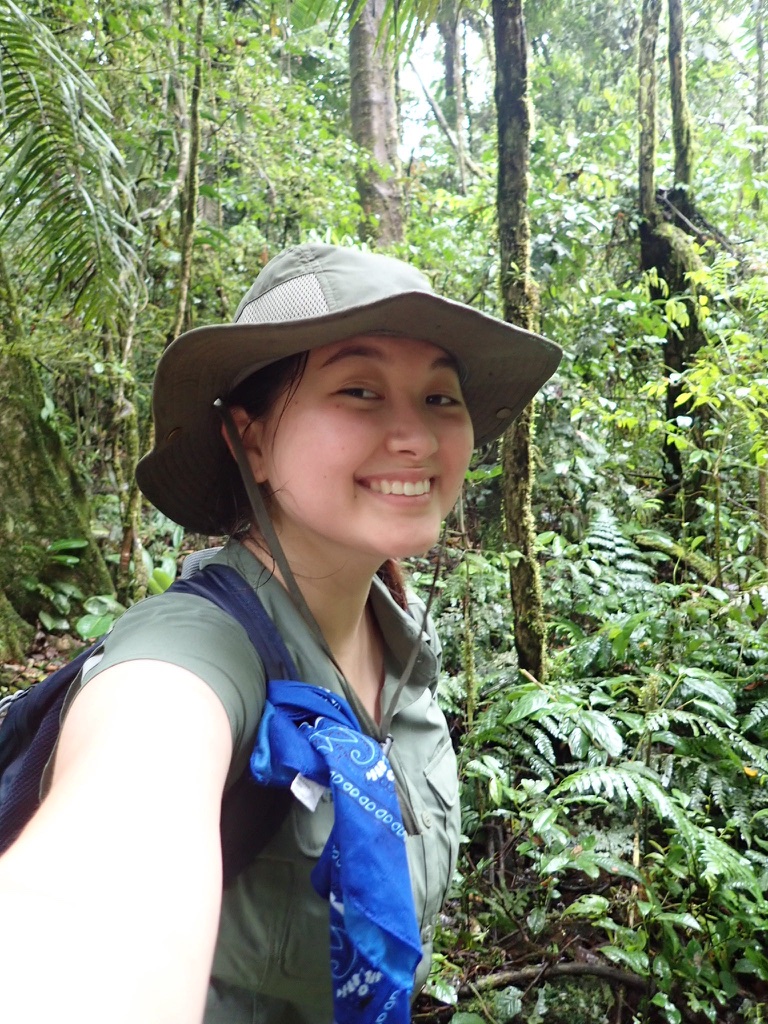Meet The Researcher: Stephanie Nordmeyer Explains How A Book Led Her To Change Her Career

 They say a great book can change your life. This was the case with Stephanie Nordmeyer, a current student in the Molecular Immunology & Microbiology discipline of the Integrated Biomedical Sciences PhD program.
They say a great book can change your life. This was the case with Stephanie Nordmeyer, a current student in the Molecular Immunology & Microbiology discipline of the Integrated Biomedical Sciences PhD program.
“During my freshman year at Texas State University, I read Parasite Rex by Carl Zimmer, which I happened to pick up from the library because I liked the cover,” she said. “I became fascinated with the world of microbiology, and I thought that the concept of parasites was “so rad.” It’s odd now how such a seemingly normal event of going to the library and checking out a book ended up setting the path for my career.
After reading this book, she switched her major from mechanical engineering to microbiology, and during her senior year she asked a teacher assistant (TA) about graduate school.
“I was very hesitant about the idea of grad school, she explained “I wasn’t sure if it was really what I wanted to do.”
Her teacher assistant, Seif Tekaya, who was a Ph.D. student at the time, mentioned that the lab he was working in had an open project looking at the presence/absence of protozoan parasites in turtles.
“As soon as I realized this was an opportunity to work with parasites, it honestly felt like fate,” she said.
She jumped on the chance and joined the lab of Dr. Dittmar Hahn. During her master’s degree, she had the opportunity to do field work in Ecuador during a study abroad program.

“It absolutely changed my life. I had great mentors, Dr. Shawn McCracken and Dr. David Rodriguez, who gave us students such an incredible and immersive learning experience,” she said. “I absolutely loved the field work, and I decided that I wanted to be a molecular parasitologist.”
When she got back from the trip, she started applying for Ph.D. programs, and looking for potential PIs who work with parasites.
“I found that UT Health San Antonio was the best suited to train me for my future career. When I was looking into molecular parasitology, I saw a lot of immunology papers,” she said. “I had never taken an immunology class before, but I knew that I needed this knowledge to be successful.”
She was especially thrilled by the partnership that UT Health San Antonio has with the Texas Biomedical Research Institute.
“I picked UT Health San Antonio primarily because of its affiliations with Texas Biomedical Research Institute,” she said. “Having the opportunity to join Dr. Anderson’s lab was a dream come true, since he has experience with field work and is very passionate about parasites.”

She is currently working with Dr. Tim Anderson, Dr. Frédéric Chevalier and Dr. Winka Le Clec’h at the Texas Biomedical Research Institute on schistosomiasis research.
Her project focuses on host-pathogen interactions. She explained that schistosomiasis is due to schistosome parasites (human blood fluke).
“These parasites require two hosts to complete their life cycle – a freshwater snail and a human. When infected, the snails will shed parasitic larvae in water, which can then infect humans,” she said. “Humans will then excrete parasitic eggs in their feces or urine, which hatch in water to infect more snails, thus continuing the cycle of transmission and infection.”
Specifically, her project looks at the microbiome of the snail blood, to which the schistosomes are exposed when interacting with the snail host. The role of the host microbiome in interfering with parasites has been well studied in insects (like mosquitos and flies), but needs further exploration in mollusks.
“We hypothesize that the snail microbiome can interfere with schistosome infection, either directly by interacting with the parasite, or indirectly by stimulating the host immune system.,” she said. “To say I’m excited about my project is an understatement – I can’t wait to see what we learn about this tripartite relationship.”
The WHO estimates that 779 million people are at risk of schistosome infection – children and adults, due to exposure to contaminated bodies of water. Nordmeyer explained that these parasites cause a wide range of pathology, including liver failure and bladder cancer, and also generate a strong type II response that results in increased susceptibility to HIV, TB, and other diseases.
“We need to study the interactions between snail and schistosome, so we can eventually determine how to break or reduce these interactions, thereby reducing transmission of this disease.”
Besides research, she enjoys reading fantasy books such as Wheel of Time, playing video games like The Witcher 3 or playing Warhammer Age of Sigmar (Stormcast Eternals, the poster boys of order)!
In the future, she plans to look for a postdoctoral fellowship to gain more experience. Afterwards, she would like to join academia and start up her own lab where she can plan field work and share her excitement (and slight obsession) of parasites with the next generation of nerds!
 This article was written by Charlotte Anthony, marketing specialist at the Graduate School of Biomedical Sciences at UT Health San Antonio. This article is part of the “Meet The Researcher” series which showcases researchers at the Graduate School of Biomedical Sciences at University of Texas Health Science Center San Antonio.
This article was written by Charlotte Anthony, marketing specialist at the Graduate School of Biomedical Sciences at UT Health San Antonio. This article is part of the “Meet The Researcher” series which showcases researchers at the Graduate School of Biomedical Sciences at University of Texas Health Science Center San Antonio.
